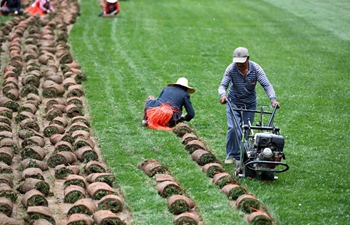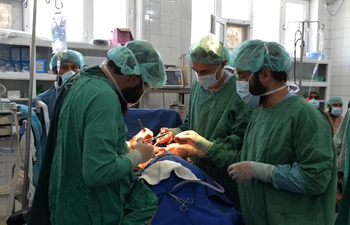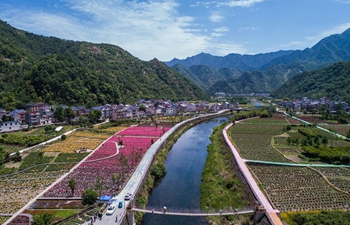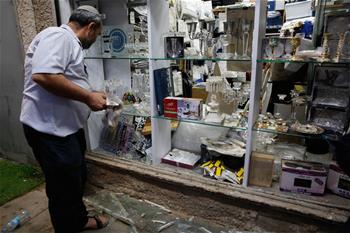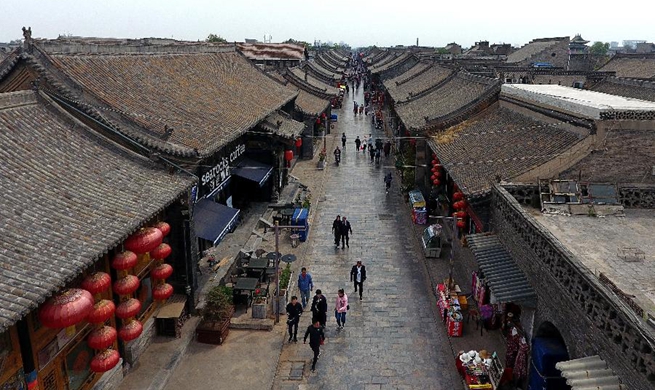ROME, May 7 (Xinhua) -- Growth in the popularity of counterfeit versions of Italy's most popular cheese is starting to grate on Italian cheese makers. It's just not clear what can or should be done about it.
Parmigiano Reggiano -- the hard, nutty, aged cheese produced in and near Emilia-Romagna, Italy's best-known food region -- is probably Italy's most famous cheese. It is shredded and spread over pasta and served in small chunks during parties and on cheese plates.
It is also attracting copycat cheeses made in places out of Italy, produced by cheese makers capitalizing on the mystique of the cheese Italians colloquially refer to simply as "Parmigiano."
"There are laws in Italy and in the European Union that prevent producers outside a specific part of the country from making a cheese and calling it Parmigiano Reggiano," Nicola Bertinelli, president of the consortium of Parmigiano Reggiano producers, told Xinhua. "But outside Europe, it's a big problem."
The best-known case of a non-Italian producer of Parmigiano comes from Wisconsin, the U.S. state most closely associated with cheese production. There, producers make a facsimile of the Italian cheese under the name "Parmesan," which is the English-language translation of "Parmigiano."
Officials from the Dairy Farmers of Wisconsin did not respond to requests for comment on the topic, but the organization's website makes it clear that the cheese they are promoting is locally made, though it does not otherwise differentiate between the Italian Parmigiano and Wisconsin Parmesan.
"There is no doubt that consumers who buy the cheese from Wisconsin think they are buying the genuine product," Bertinelli said.
He said the bogus cheese siphons off potential sales from Italian producers and if the quality of the non-Italian product is inferior -- he said it is -- then it also risks damaging the reputation Parmigiano Reggiano makers built up over generations of adherence to strict standards and traditions.
But despite those points, Bertinelli insists that his biggest concern is for consumers in the United States: "We are upset about the idea that the American consumer won't be tasting the real thing," he said.
Bertinelli and other key observers said that since the United States and other countries making versions of Parmigiano Reggiano do not fall within the scope of European law, there are no legal avenues for Italian producers. They are left trying to inform consumers about their products.
But Alberto Grandi, a business history professor at the University of Parma, in the heart of the part of Italy that produces Parmigiano Reggiano, had a different view.
Grandi, who said the cheese produced in Wisconsin was at least on par with its Italian rival, last year authored a book highly critical of rules aimed at protecting regional products in Italy.
"If the non-Italian cheese is good, why does it matter where it was made?" Grandi asked. "I say,' If it is good, enjoy it. And if it is not good, then consumers won't buy it and there's no problem.'"
Grandi said Italian laws on the "designation of origin" of a product curtail innovation and make it easier for below-average producers to survive.
"I would rather depend on the reputation of a producer than on some arbitrary rules put in place by government bureaucrats," Grandi said. "I think we should let the products speak for themselves."
